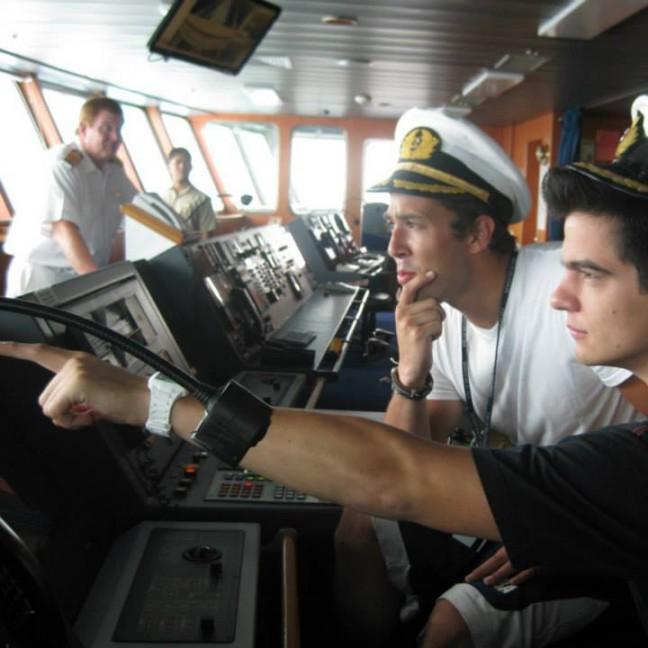A 590-foot floating classroom is currently home to eight University of Wisconsin students, who signed on to spend their semester traveling the world with Semester at Sea.
The program hosts 553 students from around the globe on a ship with an academic curriculum designed by the University of Virginia, Institute for Shipboard Education spokesperson Mallory McCarty said.
The cost of the program ranges from $23,950 to $37,950 depending on the lodging options, according to the Semester at Sea website.
The vessel, which is often referred to as the MV Explorer or the “floating campus,” is a seven deck, 590-foot ship that includes the same educational resources as a land-based university campus. This includes nine classrooms, a student union and a 9,000-volume library, the website said.
Over the course of 112 days, students visit 11 countries: Japan, China, Vietnam, Singapore, Burma, India, Mauritius, South Africa, Ghana, Morocco and England.
The students study under university professors from all around the United States and earn transferable credits through the program’s academic sponsor, the University of Virginia, McCarty said. With guest lecturers from each country on the itinerary, the students are able to learn about cultures around the world, she said.
The program offers a unique experience for all those involved, Michael Dow, a UW student and a returned participant in the program, said in an email to The Badger Herald.
“It gave us an opportunity to not only meet other adventurous students from all around the world, but to also experience the world alongside them,” Dow said. “We came back to UW with entirely novel vantage points on what it means to be a college student.”
Lauren Judge, Semester at Sea program director of public affairs, said the program offers students different opportunities than most study abroad programs.
“Semester at Sea offers students a global comparative education, connecting the world’s peoples, cultures and traditions rather than focusing exclusively on one culture or country,” Judge said.
The program may not be for everyone, considering it is difficult to obtain an in-depth understanding of a country by visiting only briefly, Haley Olig, a UW student currently aboard the ship, said in an email to The Badger Herald.
Dow said the trip offers the opportunity to take many vacations at one time. He described his trip as a “mish-mash” of global experiences all rolled into one.
“Shark cage diving in South Africa, visiting a local school in Ghana, riding a camel in Morocco, drinking vodka in Russia, eating waffles in Belgium, having a Guinness in Dublin, smoking cigars in Cuba…every experience was new and exciting,” Dow said.
Because the ship had no Internet, students had to get “more creative” about how to spend their free time, Dow said. In the beginning, it is a “difficult feat” to go without Internet, but by the end of the trip most students had forgotten how to use their iPhones or computers, he said.
Keeping in touch with friends and family while on the ship is difficult, Olig said.
Olig also said she was only sea sick the first night, but some other students on board spent the first two or three weeks puking.
Dow said he was more fortunate.
“I personally did not puke during the trip. However, there were occasional fast exits from lectures to the bathroom on rocky days,” he said.
(Written by Grace Alexander)













